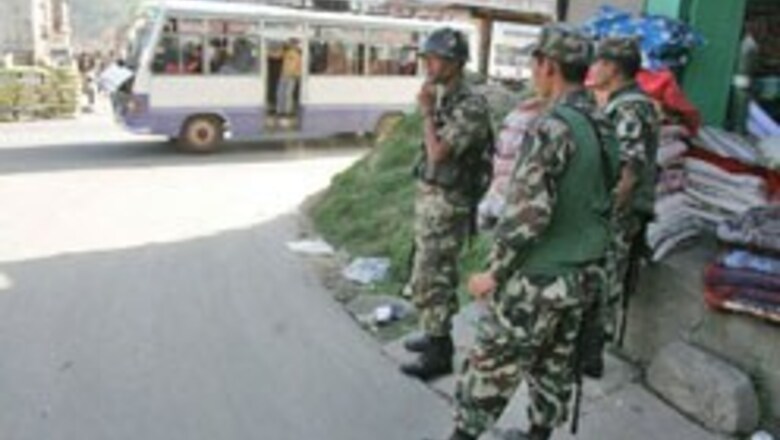
views
Katmandu: Maoists in Nepal abducted 11 unarmed soldiers as they headed home from vacation, despite their declaration of a three-month ceasefire, an army official said Saturday.
That announcement came as legislators demanded the king be stripped of control over the 90,000-strong army, fearing he could use its loyalty to propel himself into power again.
“It is the prime minister who should be the supreme commander of the army and not the king. The existing laws should be amended immediately, and that is what we are going to do,” said Shivraj Basnet, a lawmaker from Nepali Congress, the country’s largest party.
The soldiers, meanwhile, were captured on Thursday in the remote village of Ramdittha, about 500 kilometers (310 miles) east of Katmandu, according to Indresh Dahal, a spokesman for the Royal Nepalese Army.
The abductions came just hours after the rebels had declared a three-month cease-fire, and it was possible the guerrillas, who have a very limited communications network, did not know of the announcement.
There was no official reaction to the abduction—particularly with the king effectively out of power and the prime minister-designate too ill to be sworn in—but there were no immediate indications the incident would affect the truce declaration or spark renewed political turmoil.
The cease-fire had eased some of the pressure on the newly reinstated Parliament, which was ordered reconvened by the king Monday after weeks of often violent protests against the royal dictatorship.
On Friday, lawmakers proposed a truce with the Maoists _ who have battled for a decade to create a communist state _ as they met for the first time in four years. They also proposed elections for a special assembly to would rewrite the constitution.
The speaker of Parliament made the proposals on behalf of Girija Prasad Koirala, the newly named 84-year-old prime minister who could not attend because of ill health.
Koirala’s health was improving Saturday, said his aide Balkrishna Dahal, and he was meeting with visiting politicians. It was still not clear, though, when he’d be sworn into office.
The proposals, which also included initial talks with the Maoist rebels, were to be discussed Sunday in Parliament. The rebels supported the nearly three-week campaign of demonstrations organized by an alliance of seven political parties against the royal government.
On Thursday, the rebels’ elusive leader Prachanda said his fighters would not attack government targets for three months to allow Parliament time to ready Nepal for elections for the constitutional assembly.



















Comments
0 comment